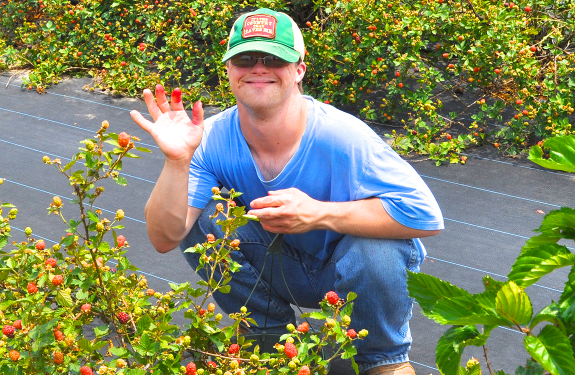A few weeks ago we held the Swim Fest, our annual end-of-summer fundraiser where our Ranchers form swim teams to compete for various trophies and raise money for their winter cruise and other quality of life issues.
Swim Fest is low-key and most of our parents come out to cheer on the gang. I was sitting with one of the older moms when her son “Ken” came up. Ken's quite a kidder and after a few jokes and pulling of legs, he headed back to the water. Ken's mom turned to me and said “Thank you so much. He is so happy. And for the first time in my life, I don't have to hope and pray that he dies at least one day before me.”
I was shocked when Kelly was small and I would hear parents–many parents–of older sons and daughters with intellectual disabilities say that their main goal in life was to outlive their child. For one thing, since Kelly was born when I was 42 and Jerry was 46, we figured that would be wishing a very early death on our daughter.
For another, we planned to make sure Kelly still would have a happy life even when we had passed on. We wished for her a long life filled with love and laughter and other people she cares about–her boyfriend Sterling, her sisters and extended family, her friends at the Ranch, who are many.
But I have certainly come to understand the deep fear and concern of parents like Ken's mom, who spent decades with her son trying different programs, none of which allayed her fears that once she was gone he would be at the mercy of an uncaring, unresponsive system.
Not that things are simple. We have had plenty of grandparents of our Ranchers die, and several parents and other family members, since we began the residential program. We have come to appreciate that death or serious illness of a loved one hits our Ranchers very hard indeed, and they struggle harder than we to arrive at the point of acceptance in their grieving, perhaps because they have more limited resources to process it and move on.
At the National Down Syndrome Congress Conference in July, some of our staff attended a workshop that discussed grieving in people with IDs. Drs. Dennis McGuire and Brian Chichoine also have some excellent suggestions in their book, Mental Wellness and Adults with Down Syndrome.
We have taken to planting memorial trees in memory of grandparents, siblings, and parents who have died. The dedication of these trees seems to offer great comfort, and we often see Ranchers standing by their loved one's tree, stroking it. We ourselves planted an oak tree in memory of our grandson and Kelly's nephew and on Noah's birthday Jerry took Kelly to visit the tree and speculate on the nature of birthday parties in heaven.
Well, we have a lot of land, and we have room for a lot more trees. In the meantime, we need to love, laugh, and live out loud, cherishing every moment that comes our way and giving thanks to God for our lives.
